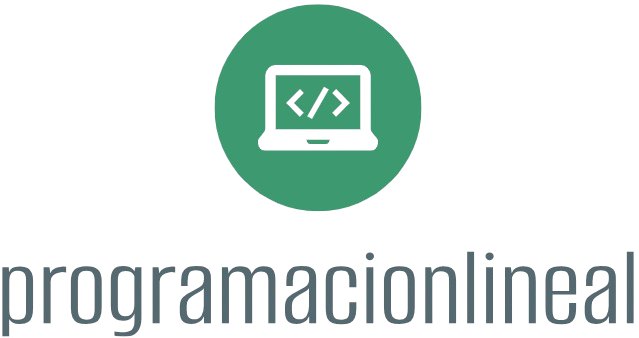Preparing for a software engineering job requires a blend of technical skills, problem-solving abilities, and strong communication. The process can be extensive but strategic planning and preparation can set you up for success. Here’s a step-by-step guide to get you ready for a software engineering role:
1. Build a Strong Foundation in Computer Science
Understanding the core concepts of computer science is crucial for any software engineering job. Focus on these key areas:
- Data Structures: Arrays, linked lists, stacks, queues, hash maps, trees, and graphs.
- Algorithms: Sorting (quick, merge, bubble), searching (binary search), dynamic programming, and recursion.
- Big O Notation: Learn to analyze the time and space complexity of algorithms.
- System Design: Basics of designing scalable systems, including load balancing, caching, and database management.
2. Choose a Programming Language
It’s essential to have expertise in at least one programming language commonly used in the industry. The most in-demand languages for software engineering roles include:
- Python: Widely used in data science, web development, and automation.
- Java: Popular for enterprise-level applications and Android development.
- C++: Used in game development and systems programming.
- JavaScript: Essential for web development, front-end and back-end (Node.js).
- Go: Preferred for cloud-based systems and microservices.
Pick one or two languages to master, but be familiar with multiple.
3. Practice Problem-Solving Skills
Software engineering interviews often emphasize problem-solving skills. To improve:
- Practice coding challenges: Use platforms like LeetCode, HackerRank, Codeforces, or CodeSignal to solve algorithmic problems.
- Work on a variety of problems: Tackle problems that involve data structures, algorithms, and system design.
- Review solutions: Focus on learning optimized solutions, even for problems you’ve solved.
- Time yourself: Simulate interview conditions by solving problems within a time limit.
4. Learn Version Control (Git)
Version control is essential for collaborating in team environments. Gain proficiency in:
- Git basics: Branching, merging, and resolving conflicts.
- GitHub/GitLab: Contributing to open-source projects or creating repositories for your work.
- Collaborating on code: Understand pull requests, code reviews, and issue tracking.
5. Understand Software Development Methodologies
Employers expect candidates to be familiar with software development lifecycles. Learn about:
- Agile development: Iterative and flexible development practices.
- Scrum/Kanban: Daily standups, sprints, and task management.
- Continuous Integration/Continuous Deployment (CI/CD): Automating the deployment process and ensuring frequent updates.
6. Build Projects and a Portfolio
Practical experience is key. Create personal projects to apply your coding skills and build a portfolio that showcases your abilities. Consider projects like:
- Web development: Build a full-stack web application using JavaScript, HTML, CSS, and back-end frameworks (Node.js, Django, etc.).
- Mobile development: Create an Android or iOS app using Java or Swift.
- Open-source contributions: Collaborate on open-source projects to demonstrate real-world experience.
- Automation scripts: Automate tasks using Python or bash scripting.
Post your projects on platforms like GitHub, or create a personal website to showcase your portfolio.
7. Study System Design
For mid-level or senior software engineering roles, system design knowledge is essential. Practice:
- Designing scalable systems: Understand how to build systems that can handle large volumes of traffic.
- Databases: Learn about SQL vs. NoSQL databases, and when to use each.
- Load balancing, caching, and redundancy: Know how to optimize systems for high availability and performance.
- API design: Learn about REST and GraphQL for creating and managing APIs.
Books like Designing Data-Intensive Applications or System Design Interview are great resources.
8. Prepare for Technical Interviews
Technical interviews for software engineering roles can be challenging. Preparation is key:
- Behavioral questions: Be ready to explain your past experiences, collaboration, and problem-solving approaches.
- Technical phone screens: Practice solving coding problems while talking through your thought process.
- On-site interviews: These may include coding on a whiteboard, system design, and behavioral interviews. Practice whiteboard coding and explaining your solutions out loud.
9. Practice Behavioral Interviews
Technical skills alone won’t land you the job. Interviewers will also assess how well you fit into the company culture. Prepare for common behavioral questions such as:
- “Tell me about a challenge you faced and how you overcame it.”
- “Describe a time when you worked with a difficult teammate.”
- STAR Method: Use the Situation, Task, Action, Result (STAR) approach to frame your responses.
10. Networking
Networking is crucial for breaking into the software engineering field:
- LinkedIn: Connect with engineers, recruiters, and professionals in the industry.
- Meetups and conferences: Attend tech meetups, webinars, and industry events to learn and network.
- Open-source communities: Engage with other developers and contribute to projects.
11. Keep Learning and Stay Updated
Technology evolves rapidly, and staying current is essential. Follow these steps to keep your skills fresh:
- Learn new frameworks: Stay updated with the latest technologies in your field.
- Read blogs and books: Follow industry leaders and tech blogs to stay informed.
- Take online courses: Platforms like Coursera, Udemy, and edX offer courses on new tools and concepts.
Conclusion
Preparing for a software engineering job involves honing your technical skills, practicing coding problems, building a portfolio, and preparing for both technical and behavioral interviews. By combining practical projects with a deep understanding of computer science fundamentals and networking with industry professionals, you’ll be well-equipped to succeed in the competitive software engineering job market.











